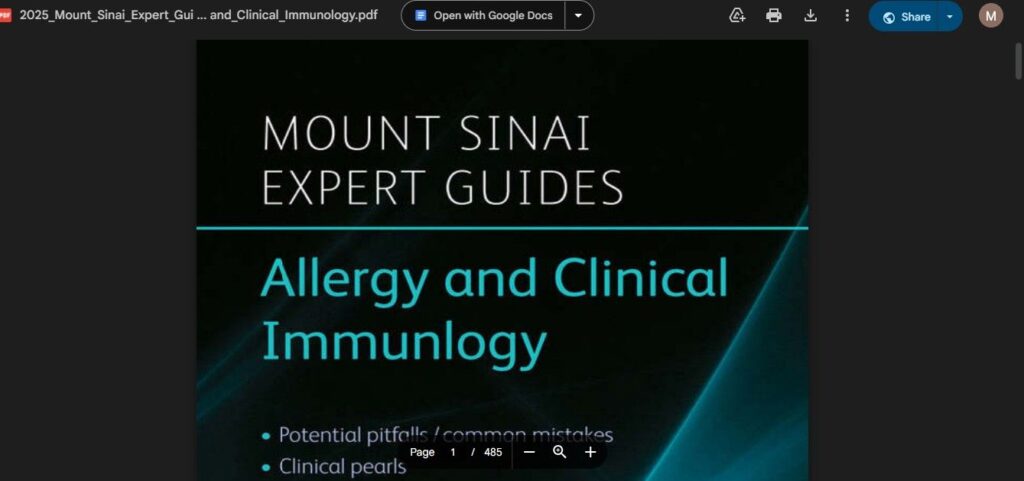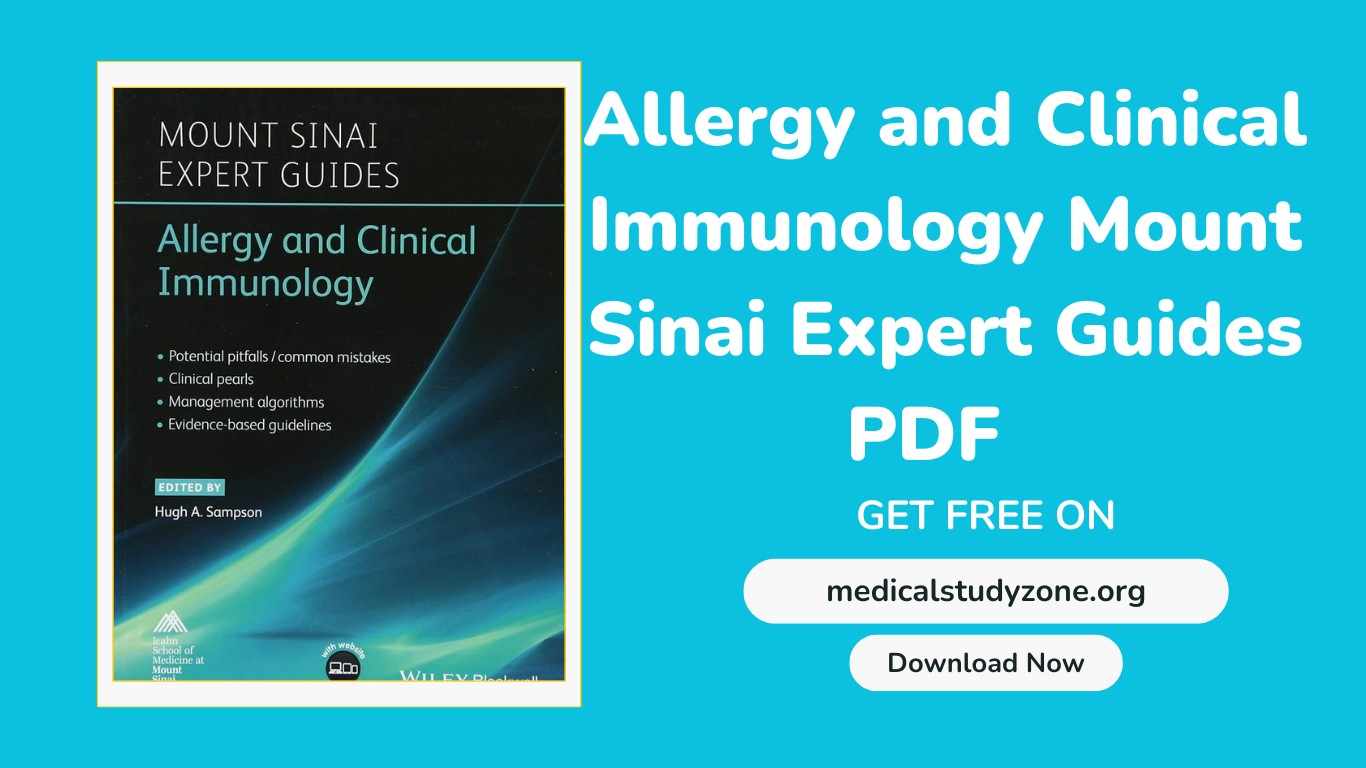need authoritative guidance on allergic disorders and immune conditions? This free PDF compiles Mount Sinai’s clinical protocols, diagnostic algorithms, and treatment frameworks for allergists, immunologists, and primary care providers managing complex immune-mediated diseases.
| detail | information |
| title | Allergy and Clinical Immunology: Mount Sinai Expert Guides |
| author | Hugh A. Sampson et al. |
| file size | 9.3 MB |
| pages | 485 |
| subject | Immunopathology, Allergic Diseases, Clinical Immunology |
| download/read online | ✅ Available |
| storage | Google Drive |
| format |
click “Download” (⬇️) or read instantly

optimize viewing: use “two-page mode” for algorithm flowcharts
Best Alternate Sources for Immunology
- kelleys textbook of rheumatology – autoimmune disorder mechanisms
- robbins basic pathology – immunopathological disease processes
- janeway’s immunobiology (similar molecular focus) – innate/adaptive immunity principles
- davidson’s essentials of medicine – clinical management of hypersensitivity
- harper’s illustrated biochemistry – antibody structure and complement system
Why this Book is Valuable
This guide uniquely integrates 2023 AAAAI/EAACI guidelines with Mount Sinai’s 12-year outcome data on biologics like omalizumab for refractory asthma. It features decision trees for anaphylaxis management validated in multicenter trials (JACI 2022), plus rare-disease protocols for mastocytosis and hereditary angioedema – conditions affecting 1:10,000 patients.
Immunology fellows will value the drug desensitization protocols for antibiotic allergies, while pediatricians gain evidence-based strategies for IgE-mediated food allergy prevention – proven to reduce peanut allergy incidence by 81% in high-risk infants (NEJM).
Who Should Download This?
Allergists, clinical immunologists, and pulmonologists will find this indispensable for complex cases like eosinophilic disorders. Primary care physicians can apply its urgent care protocols for acute urticaria and anaphylaxis, while pediatric residents benefit from age-specific management of atopic dermatitis. Medical students preparing for USMLE Step 2 CK will also appreciate its concise hypersensitivity disorder algorithms.
We do not claim copyright for any content shared. If you believe your copyright has been infringed, please contact us for removal.
This content is provided for educational purposes only. We encourage users to purchase original licensed books and materials.
For DMCA / removal requests, email us at [email protected].

